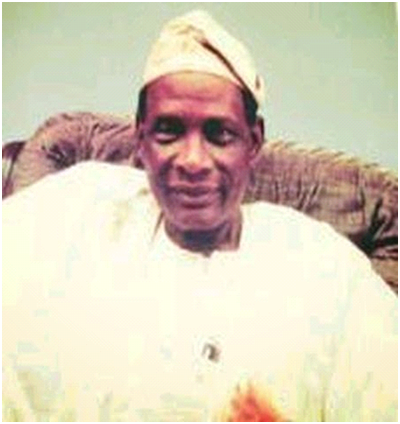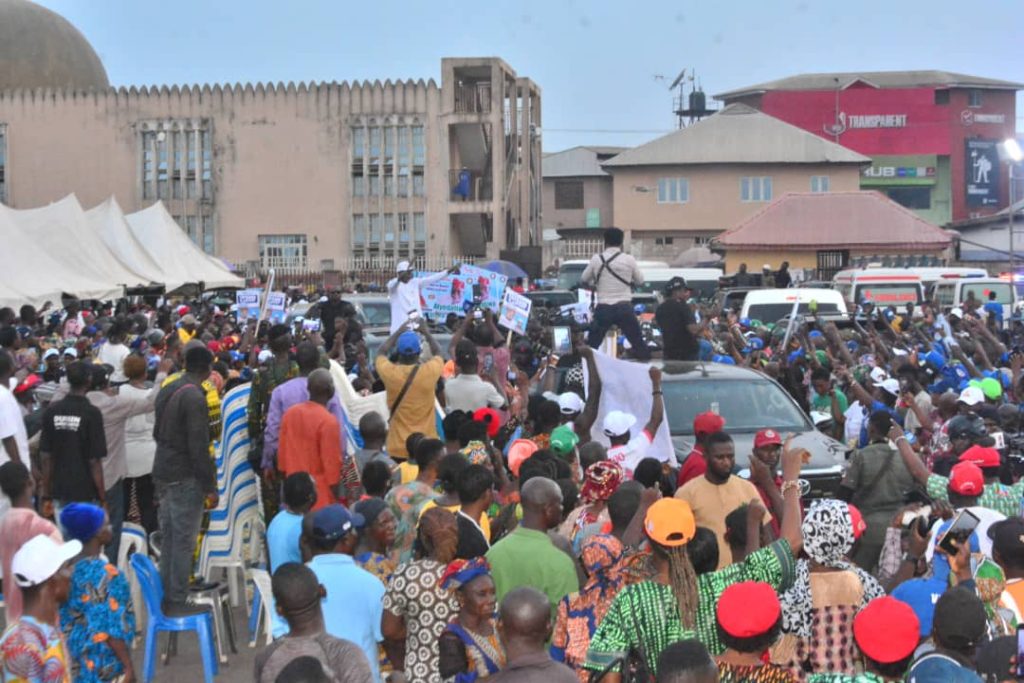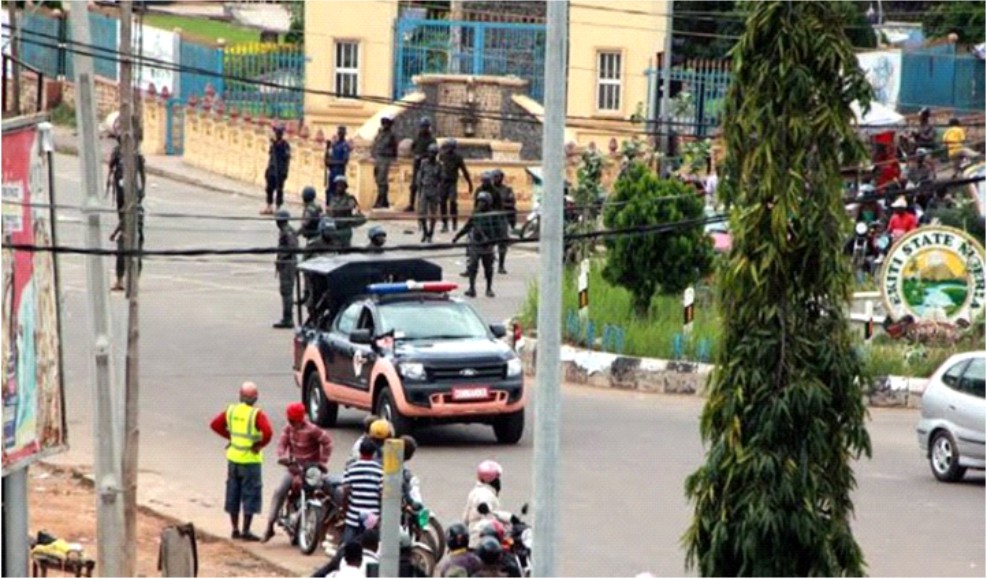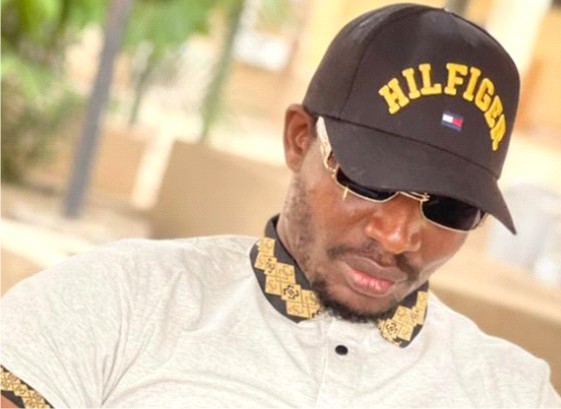Zoning and its ugly consequences
By Eric Teniola
|
On my way to the annual Fanti festival, held recently at Igbosere in Lagos Island during which Lafiaji boys led by my friend, Muyiwa Adejokun lost to the Campus boys, I sighted the LAPAL House. The house is now abandoned. LAPAL House is a 12-storey building on Lewis street Lagos Island. It is owned by WEMABOD Estate Limited, one of Nigeria’s most enduring estates limited. On June 3, 2002, the house was razed in a fired incident. In 1977, Hacogen Company Limited owned by Dr. Joseph Wayas (21 May 1941 – 30 November 2021) occupied the sixth floor of the building. Dr Wayas later donated the office to serve as temporary office for the NPN.
Dr Kingsley Ozumba Mbadiwe(1915-1990) from Arondizuogu then under then Orlu division of present-day Imo State, who in 1978 was a Vice Presidential aspirant later donated his house at Jibowu street near WAEC in Yaba, Lagos to the NPN to serve as the party’s headquarters. The house has now been turned to a hotel by Dr. Mbadiwe’s children.
To many, LAPAL House means nothing but to me it brought nostalgic memories. It was in that house that the zoning policy was adopted and cemented as part of the unofficial policy in the Nigerian political system.
I scooped on the story by accident. On October 5, 1978, my friend, Dr. Chuba Okadigbo(December 17, 1941 – September 25, 2003) invited me to a dinner at the Federal Palace, Lagos, I honoured the invitation. The relationship between a politician and a reporter is always everlasting. They both need each other. After the dinner, Dr Okadigbo told me to drop him at Igbosere for a meeting. I dropped him only to realize that he forgot the key of his hotel room in my car. I had to wait a while for him to finish the meeting. I took time off to visit Kunbi’s place, a very popular beer parlour in Igbosere.
In Lagos as it was then and it is now, there is hardly any street on Lagos Island that does not have beer parlours. That is why they say, Lagos never sleeps. At about 12midnight, I came back to LAPAL House, only to discover that the meeting has not ended. Finally at 12.50 a.m. I saw many prominent NPN leaders departing LAPAL House for their destinations. It was at this point that I alerted Dr. Okadigbo that I was still around. He immediately jumped into my car and expressed shock to me for being around at that time of the day. I explained to him that he forgot the key to his hotel room in my car.
“We have zoned it and I hope it will work”, he uttered to me. At that time, NPN the convention had not been held. I asked him what zoning meant for it was a strange word in the Nigeria political history.
The zoning that I understand is a method of urban planning in which a municipality or other tier of government divides land into areas called zones, each of which has a set of regulations for new development that differs from other zones. Zones may be defined for a single use (e.g. residential, industrial), they may combine several compatible activities by use, or in the case of form-based zoning, the differing regulations may govern the density, size and shape of allowed buildings whatever their use. The planning rules for each zone, determine whether planning permission for a given development may be granted. Zoning may specify a variety of outright and conditional uses of land. It may indicate the size and dimensions of lots that land may be subdivided into, or the form and scale of buildings. These guidelines are set in order to guide urban growth and development.
When we finally got to his room, Dr Okadigbo now explained to me fully the meaning of zoning or power rotation in the then Nigeria politics. He said the Presidency would go to the area, we now refer to as the North West while the Vice Presidency would go to Imo and Anambra states which we now refer to as the South East. He added that the Presidency of the Senate would go to Cross Rivers or Rivers, which we now refer to as part of South South while the Speaker of the House of Representatives will go to the Middle Belt. The Chairmanship of the Party will go to what we now know as the South West while the National Secretary will go to what we now regard as the North East.
In a nutshell, Dr. Okadigbo explained that the zoning policy was designed to ensure that no part of the country as left out, in the political agenda of the party. It was too late for me to go home that day, so I had to sleep on Dr. Okadigbo’s sofa in his room at the Federal Palace Hotel. The meeting was presided over by Aliyu Makama Bida(1905-1980), who was the Patron of the NPN at that time.
He was the first Northern Minister of Education and Social Welfare, and later Minister of Finance and Treasurer of the NPC. From teacher to headmaster, to N.A. Councilor and a Senior Minister with a responsible portfolio in Education, Aliyu Makama became a titan in the affairs of the North and as a member of Northern Peoples Congress (NPC). He rose to the position of Party Treasurer and took charge of the financial aspects of the NPC. He held the position throughout the existence of the Party. Though he is older than Sardauna of Sokoto, he was generally regarded as one of the closest allies and confidants to Sardauna. It was all due to the ultimate show of trust by the Sardauna of Sokoto to Aliyu Makama Bida. Aliyu frequently acted as Premier of Northern Nigeria any time the Premier travelled outside and the appointment was by Sardauna himself.
The protem Secretary of the NPN at that time was Dr. Nwakama Okoro from Amuri, Arochukwu in Imo state.
He married Eme Ikpeme in 1959. Dr Okoro represented Arochukwu/Ohafia in the Constituent Assembly between 1977 and 1978. He was the National President of the Nigerian Bar Association between 1977 and 1978. He contested and lost to Chief Samuel Mbakwe of the NPP in the Imo state gubernatorial election in 1979. Dr Okoro’s book, THE RISE AND DUTIES OF A LAWYER is a good read for any lawyer in Nigeria.
Also present at the meeting at LAPAL House that day were protem officers who represented their various states. They were named National Vice Chairmen. They are Chief Christian Chukwumah Onoh(Anambra), Prince Adeleke Adedoyin(Ogun), Major General(rtd) Robert Adeyinka Adebayo(Ondo), Chief Victor Babaremilekun Adetokunbo Fani-Kayode(Oyo), Dr. Josiah Onyebuchi Johnson Okezie(Imo), Alhaji Sule Katagun(Bauchi), Dr. C.G. Okojie(Bendel), Chief (Dr) Joseph Sarwuan Tarka (Benue), Alhaji Kam Salem(Borno), Dr. Joseph Wayas(Cross River), Professor Iya Abubakar(Gongola), Alhaji Nuhu Bamali(Kaduna), Alhaji Inuwa Wada(Kano), Dr. Abubakar Olusola Saraki(Kwara), Dr. J.O.J. Okezie(Imo)Alhaji Yahaya Sabo(Plateau), Alhaji Shehu Shagari(Sokoto) and Chief Melford Obiene Okilo(Rivers).
In the afternoon, I went to the office to write the news with the approval of my then news Director, Mr. Tayo Kehinde and my Editor, Mr Sola Odunfa. The story was in the front page of THE PUNCH. Our Editor in Chief then, Chief Sam Amuka Pemu, having read the proof, ordered that the story should be in the first and second editions. The following day, THE PUNCH printed over five hundred thousand copies on that day. As expected there were denials of the story by the NPN members but the management of THE PUNCH at that time stood by me. I was not bothered by the denials of the story but that my scheduled interview with the Chairman of PAN Automobile Nigeria Limited, Alhaji Shehu Usman Aliyu Shagari GCFR (25 February 1925 – 28 December 2018) might be cancelled. I cultivated friendship with so many during the Constituent Assembly including that of the Chairman of the Nigeria Railway Corporation Alhaji Ibrahim Dasuki( 31 December 1923-14 November 2016) who was at the meeting that day.
The interview was not cancelled afterall.
The zoning policy would have worked in all positions proposed then by NPN, except that of the Speaker of the House of Representatives. After the 1979 election, the NPN went into an accord with the NPP as a result Chief Edwin Ume Ezeoke(September 8, 1935 – August 1, 2011) from Amichi in Nnewi of the NPP became speaker of the House of Representatives. With the NPN Accord,Chief Ume Ezeoke defeated Mr. Hamza M. Ngadiwa from Biu (North) Constituency in Borno State by 245 to 201 votes in a election held on October 1, 1979. On the same date, Alhaji Idris Ibrahim of the NPN from Niger state defeated Mr. Faji Fajobi of the UPN from Ikere Ekiti by 244 to 201 votes to become the deputy Speaker of the House of Representatives.
After the convention, Alhaji Shehu Shagari picked Chief Alexander Ifeanyichukwu Ekwueme GCON (21 October 1932 – 19 November 2017) from Oko Town, in present day Anambra State as his running mate.
Dr Joseph Wayas (21 May 1941 – 30 November 2021) from Basang, Obudu, Cross River state became the Senate President with the support of NPP/NPN by defeating Senator F.O.M. Atake from Warri of UPN by 53 to 42 votes. With the support of NPN/NPP accord also on 9th October 1979, Senator John Wash Pam from Plateau state of the NPP defeated Senator Sabo Barkin Zuwo from Kano state of the PRP by 51 to 43 votes to become the deputy Senate President.
Chief Egunjenmi Augustus Meredith Adisa Akinloye (August 19, 1916 – September 18, 2007) popularly known as A.M.A. from Itutaba and Seriki of Ibadanland became the Chairman of the Party.
Alhaji Adamu Ciroma (20 November 1934 – 5 July 2018) from Bole family in Potiskum, Yobe State, became the Secretary of the Party.
The NPN was formed on September 20, 1978 at the Conference Hall of the Satellite Town in Lagos. I covered the event. The party held its Convention on December 8, 1978 at the Casino Cinema, Alagomeji, Yaba, Lagos—which has now turned to an apartment building. During the Civil war in 1967, the Casino Cinema was burnt.
At the NPN Convention at Casino Cinema, the following officers were elected. They are National Publicity Secretary—Alhaji Suleman Tukuma, assistant Publicity Secretaries—Dr Chuba Okadigbo, Mr. Okumagba, Mr. Mvendaga Jido. National Financial Secretary—Alhaji Ibrahim Dasuki, Assistant Financial Secretary—Mr Donald Etiebet, Alhaji Abdullahi Adamu(75), the Sarki Yakin Keffi, now National Chairman of APC, Mr. I. Sagari Usman. National Treasurer- Dr. Onibuje, deputy Treasurer-Alhaji Bello Maitama Yusuf, National Legal Adviser—Chief Richard Osuolale Akinjide, Assistant Legal Adviser—Mr Tunji Arosanyi, Auditor—Mr Kenton Giadon and assistant auditor—Alhaji Magaji Mauzu.
Even before then, the military practiced what might be termed as zoning too. After the overthrow of General Gowon on July 29, 1975, Brigadier Ramat Murtala Muhammed ((8 November 1938 – 13 February 1976) became Head of State while Brigadier General Olusegun Obasanjo from Abeokuta, Ogun State became Chief of Staff, Supreme Headquarters. After the assassination of General Murtala Muhammed, a Fulani from Kano, General Obasanjo was made the Head of State and a Fulani officer, Lt-Colonel Shehu Musa Yar’adua((March 5, 1943 – December 8, 1997) was over promoted from the rank of Lt-Colonel to a Brigadier and made Chief of Staff Supreme Headquarters, to pacify the Fulanis and the North.
Even after the overthrow of President Shehu Shagari on December 31, 1983 by Major General Muhammadu Buhari, he refused to adopt the NPN zoning policy. He instead appointed Brigadier Babatunde Abdulbaki Idiagbon (14 September 1943 – 24 March 1999) from Ilorin, which is part of North Central zone at the moment as Chief of Staff Supreme Headquarters which is the equivalent of Vice President.
When General Ibrahim Babangida (80) from Minna, Niger state overthrew General Buhari in 1985, he appointed Commodore Okoh Ebitu Ukiwe (81) from Abiriba in Abia State as Chief of General Staff. His father was a traditional ruler in Abiriba and Head of the Old Bendel Division Local Government Appeal Court. He served from August 1985 to October 1986. He was replaced by Admiral Augustus Akhabue Aikhomu (20 October 1939 – 17 August 2011), from Idumebo-Irrua, Edo State.

Chief Ernest Adegunle Oladeinde Shonekan GCFR (9 May 1936 – 11 January 2022) did not have a deputy as such, but with the decree setting up the Interim Government, General Sani Abacha, who was then the Chief of Defence Staff, was presumed to be the most senior. He eventually took over power from Chief Shonekan on November 17, 1993 and named the ailing General Donaldson Oladipo Diya(78) from Odogbolu in Ogun state as the Chief of General Staff, who was the de facto Vice President of Nigeria at that time.
Had he not been involved in the phantom military coup in 1997, Major General(rtd) Tajudeen Olanrewaju, from Lagos Island, the favourite of General Sani Abacha, would have succeeded General Diya as the Chief of General Staff. General Olanrewaju recently pardoned by the President, Muhammadu Buhari, is one of the descendants of Alhaji Muritala Ajadi Animashaun(1870-1959) from Olowogbowo in Lagos Island. A junior grammar school in
Surulere, Lagos founded on January 1, 1970, was named after Alhaji Ajadi Animashaun whose family is very famous in Island.
General Sani Abacha got frustrated that he did not name anyone as the Chief of General Staff till he died on the 8 June 1998.General Abdusalami Abubakar (79) from Minna, Niger State, picked Admiral Okhai Mike Akhigbe from Fugar,Aviawu clan in Etsako Central Local Government Area of Edo State, to be his Chief of General Staff.
All these were military appointments. But when we embarked on the democratic system in 1999, Zoning became an integral and unofficial policy n Nigeria. Till today it has been so. Now the Zoning policy has become like a curse. It is a burden we are all carrying. How come a policy that was designed to unite the country has now divided us. Never have we been so divided as a Nation.
To me zoning as a policy is a protest against abuse of power. If things had been fair in this country, there should not have been any demand for zoning. If other areas had been carried along in appointments and distribution of amenities, the constant call for zoning would have been less. Those in authority in this country past and present are guilty of abuse of power.
Abuse of power or abuse of authority, in the form of “malfeasance in office” or “official abuse of power”, is the commission of an unlawful act, done in an official capacity, which affects the performance of official duties.










